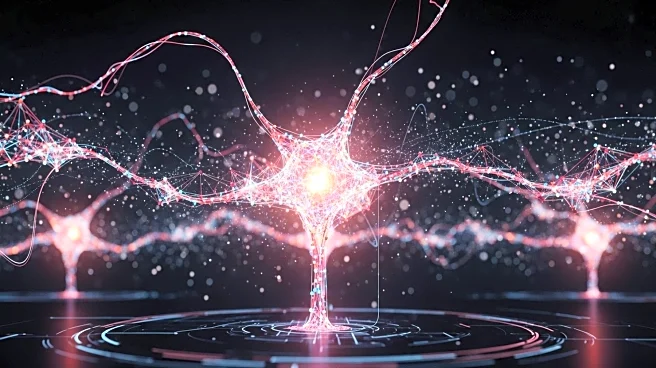What's Happening?
OpenAI has released a research paper investigating the persistent issue of hallucinations in large language models like GPT-5 and ChatGPT. Hallucinations are defined as plausible but false statements generated by these models. Despite advancements, these hallucinations remain a significant challenge. The paper suggests that the pretraining process, which focuses on predicting the next word without true or false labels, contributes to this issue. The researchers propose that the evaluation models set incorrect incentives, encouraging models to guess rather than express uncertainty. They recommend updating evaluation methods to penalize confident errors more than uncertainty, similar to negative scoring in tests like the SAT.
Why It's Important?
The findings highlight a critical aspect of AI development, emphasizing the need for more accurate and reliable AI systems. Hallucinations can undermine trust in AI technologies, affecting industries that rely on AI for decision-making, such as healthcare, finance, and customer service. By addressing the evaluation incentives, OpenAI aims to improve the reliability of AI outputs, potentially enhancing user trust and expanding AI applications. This research could influence how AI models are trained and evaluated, impacting the broader AI industry and its integration into various sectors.
What's Next?
OpenAI's proposed changes to evaluation methods may lead to revisions in how AI models are assessed across the industry. If adopted, these changes could result in more reliable AI systems, reducing the occurrence of hallucinations. Stakeholders, including AI developers and users, may need to adapt to new standards and practices in AI evaluation. The research could also spark further studies into improving AI accuracy and reliability, potentially influencing future AI development strategies.











